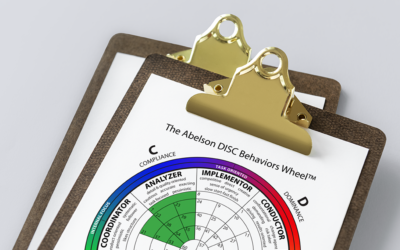Can you really motivate people without money? Most people don’t use their imagination to motivate others. They rely too much on motivating with money. But, you MOST CERTAINLY CAN motivate people without paying them anything. We all do it all the time!
For example, you are working on a project, and all of a sudden things start to go bad. One of your colleagues steps in the last minute to help you turn things around and it works. You don’t pay them anything for stepping in and helping you. You may offer them a sincere “thank you,” but no money changes hands. The organization pays them, but their pay in not related to helping you with your last-minute problem. For another example, as a father or mother, do your children pay YOU when you do things for them? Of course not!
People do things for others all the time, with no transfer of funds whatsoever!
The question becomes; how do you motivate ANYONE without paying them? In this article we explore one of six major motivational concepts that gives us guidance on how to motivate individuals with things THEY are motivated by, WITHOUT paying them a penny!
What Are Characteristics of A “Traditionally” Motivated Person?
The easiest way to identify if someone is “Traditional” is to look at the Motivators section of your report from Abelson. If the page on Traditional motivation is the first of the six motivator pages, the person is most likely motivated primarily by Traditional motivators. The comments on that page in their report tells you exactly how to motivate them. For when you don’t have a report on “Traditionals,” keep in mind they are motivated by one or more of these characteristics.
Among other things, they like things like …
- a structured environment
- rules to guide them
- a system for living
- boundaries to work within
- regulations to follow
How Do You Specifically Motivate “Traditionals” Without Money
It’s much easier than you think. For example, Traditionals are sometimes very religious. Every major religion I can think of has a set of rules to follow. It may be how to dress, what to eat, when to pray, when to go to their house of worship, or many other sets of rules. Religion gives people guidelines, principles, and rules. Religion tells us what is “right” and what is “wrong.” Traditionals usually feel very comfortable with all this structure, because it gives them direction and boundaries of how to do things.
Organization culture, or the set the rules of that organization, is another aspect to consider when motivating others without money. Traditionals feel right at home in a culture or environment that is structured, giving them guidelines and direction regarding what to do. Give them that structure in your organization (company, division, team) and they will prosper and be more likely to stay. Have an environment with no or few boundaries or direction from leadership, and Traditionals will feel out of place and likely struggle with completing their tasks. “Individualistics” (another of the six major motivational concepts discussed in another article) love the lack of structure and that motivates them. So, it is important to match the preferred motivational concept of the person to the culture of the organization. That’s one of the many reasons organizations use our assessments in their hiring process. The assessments help them see if there is a fit between the motivational style of the job candidate, with the job, and with the organization’s culture.
On a more specific note, Traditionals like managers and leaders who give them direction in a task and suggest or tell them what to do and ways to do it. “It’s my way or the highway” managers are appreciated by the Traditionals, as long as the manager gives that structure with respect, not being too bossy. Don’t get into “you are right and they are wrong,” but do give the Traditionals guidance. Traditionals also like to have lists of what to do, when to do it, and how to do it. Give them a little ‘freedom” or “wriggle room” to modify things within the structure and the structure you give them will go far.
As mentioned above, respect is an important issue for Traditionals. They want you to respect them as a person, value their time and opinion, and not challenge their belief system. You can share your recommended structure, but don’t be too overbearing when you do that or threaten their beliefs while doing it. In other words, make sure what you are asking them to do is ethical and appropriate considering their beliefs.
More specifically, show the Traditional how the task you want them to do benefits or fits with their personal belief structure. For example, if they are an intense “I” on their DISC behavioral profile, knocking on 100 doors or calling 100 people a day to introduce themselves to their target market allows them to meet others, get better known in their market, and potentially dominate that real estate market. That fits into their “I” desires to be known and liked by others and gives them a structure to interact with others. Another example is when working with a student, develop an agenda and timeline for when to work on and learn certain school subjects. If their value or belief is “to do well in school,” this helps them reach that goal. Or, for “C” DISC styles, give the Traditional a lot of structure regarding what to look for, a level of excellence needed, and a timeline to complete the task when they are using the internet to research a certain topic.
In summary, Traditionals like structure, guidelines, rules, a system for living and behaving, and things that support their personal belief system. When implementing tasks or rewarding them for work well done, do so with respect of who they are, specifics on how to do the task, or specifics on the reward (ex., “thank you for doing …”). Make sure what you do fits within their personal belief system or what THEY value.
When motivating the “Traditional,” also remember people’s personalities are complex. Integrate other motivational concepts of importance to them with the Traditional concepts. Look at our articles on the five other motivational concepts or consider attending our DISC & Motivators Certification to really understand and use this system of motivating without money. Additionally, integrate how they behave (their DISC) along with the motivators, and you will be able to motivate them to do those things THEY love to do in a way THEY love doing it. They will be more successful, and you will too, through their actions. When you can, give them our DISC and Motivators assessment and their report will give you guidance on how to best motivate them without money.




